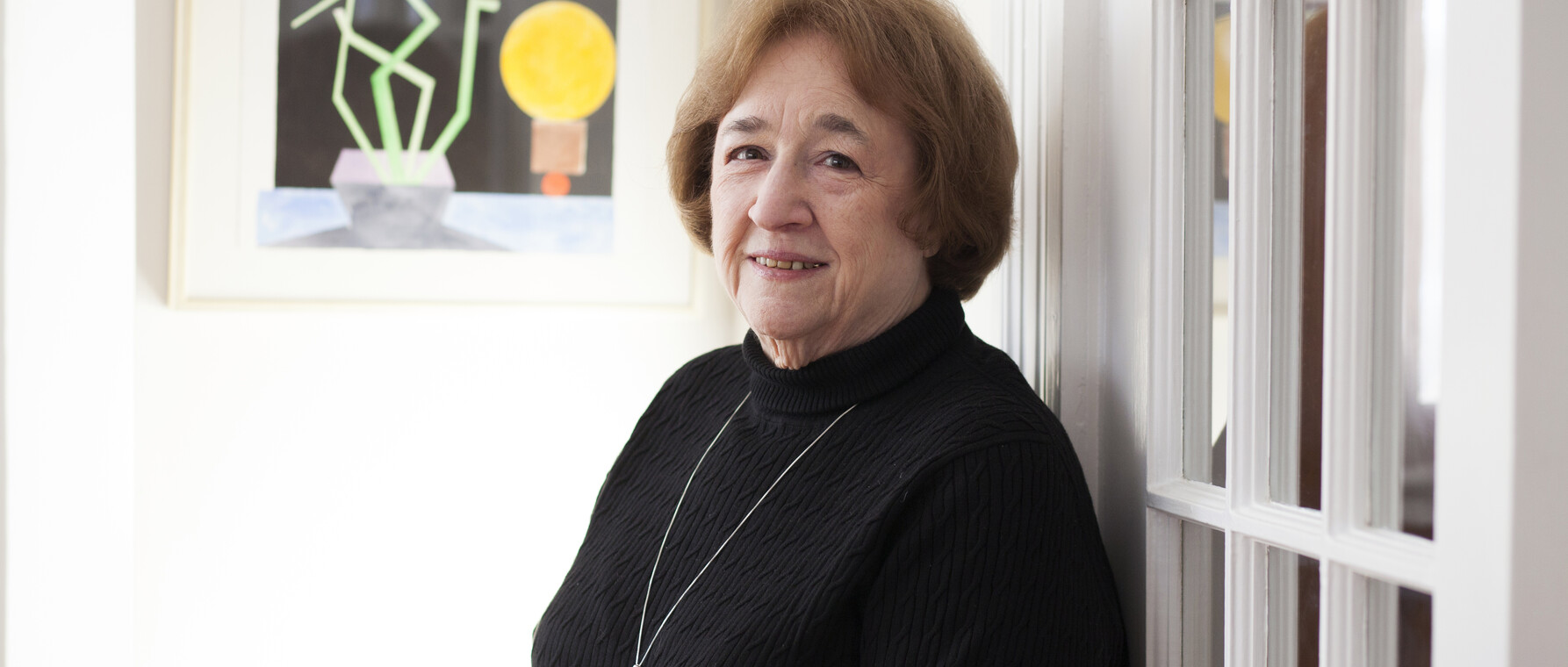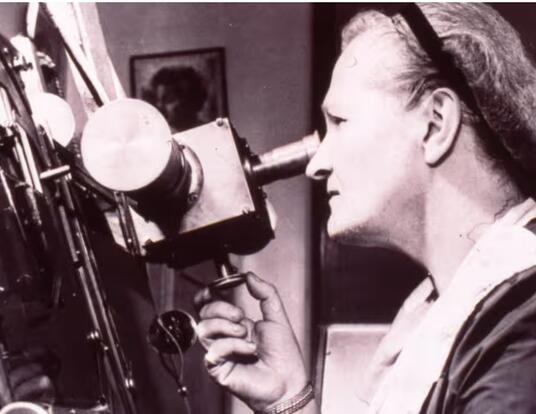A Voice Unlike Any Other
Helen Vendler, PhD '60

"Incomparable."
That’s how the former us poet laureate Charles Simic referred to Helen Vendler, PhD ’60, in a glowing review of her 2015 collection of essays on poetry, The Ocean, the Bird, and the Scholar. At age 89, Vendler reflects on the poetic form, its ability to confer a kind of immortality, and why the Arthur Kingsley Porter University Professor Emerita calls herself a critic rather than a scholar.
The Ocean, the Bird, and the Scholar is a collection of two decades of your critical reviews and essays, but it’s also personal. You talk about growing up and discovering poems, to which you refer as “histories of human consciousness.” What did you mean by that?
A lyric poem is a dynamic form. It ends often in a different place from where it began. Think of George Herbert’s poem “The Collar.” When it begins, he’s railing at God. “I struck the board, and cried, ‘No more; / I will abroad!’” By the end he writes, “Methought I heard one calling, Child! / And I replied My Lord.” Poems are not position papers. They are transcripts.
Almost every word in a poem offers a progression of the mind thinking. And it’s the private mind because it’s not directed primarily at the reader. It’s trying to make something a series of impressions that will click into a satisfying form. Eventually, of course, the poet has to think of the reader and say, “Would anybody understand this? Or is this too peculiar a word?” When Eliot writes “polyphiloprogenitive” in “Mr. Eliot’s Sunday Morning Service,” he’s using a word that nobody knows. If you’re a poet, to do something like that is a deliberate insult, in a way, to the reader. Nonetheless, it’s necessary to the poet at that moment as the response of his sensibility to the occasion.
There’s such a temptation, once in a while at least, for every poet to put the contents of even a difficult mental dynamic on paper if it enacts the contour of the mind at that moment. It’s a mimetic act, and it’s tracking a living process.
So is poetry, in terms of literary forms, the most direct way of experiencing another consciousness?
For me it’s the most direct way. The English poet and critic Matthew Arnold said that lyric poetry is “the dialogue of the mind with itself.” There is conflict; there is drama. The actors on the stage are the words of the poem. Each comes in and makes a little bow and then suddenly the language becomes archaic or technical or ecstatic or melancholy. It’s thrilling because you never know what series of words the poet is going to call up on stage. And the fact that poets create that language from scratch, that they begin with a blank sheet of paper, is to me a miraculous thing, especially when, as a modern receiver of the words, you’re hearing a voice from maybe 400 years ago. I can’t ever believe it’s happening.
Poems are not position papers.
They are transcripts.
-Professor Helen Vendler
I was surprised to read that you think of yourself as a critic rather than a scholar. Why is that?
Scholars are people enraptured with fact—linguistic, historical, scenic. They love getting text and context in an edition or a biography totally right. The work has a clear contour of correctness.
I have some of that in me, certainly. But I want also to be able to say what I think about a poem’s strategies. As Robert Lowell writes in “Epilogue,” “Yet why not say what happened?” Why not say what you think about poems by Wallace Stevens, which you are constrained from doing within an edition? George Herbert says of himself, “I (who am never loath / To spend my judgment),” and his poems bear that out. I have always wanted to “spend my judgment.” And the critical mind wants a firm descriptive and evaluative result. Does the poem work or not? Do I want to read more by this person or not? I just couldn’t refrain from investigating and making evident to others the evolution of a poet’s idiom. And it was great fun too.
Looking back on your career, you write, “If there was any conscious drive in me to alter the field of criticism, it was to insert into the analysis of lyric an analysis of its motivating emotions and convictions, and to demonstrate their stylistic results.” Why have style—and the feelings that inspire it—been so important to you both as a critic and a teacher?
When I came to Harvard, from my undergraduate major in chemistry, I was just astonished to see what a scholarly paper in literary studies looked like. It might enumerate Dickens’ interesting and eccentric characters, but that would be the end of it. The creative impulses inventing them remained unmentioned. Where did they come from? Why are they present? What did Dickens have in mind in inventing them, a different set for each novel? I mean, none of those questions was ever asked as such. Nor was it ever said that this poem is so touching because of its discontinuity: it breaks itself in half, syntactically from participial expression of the present to narration of a shared past. Strategies of style were almost never discussed. When style was mentioned, it was in large, generic terms rather than in the minute ways in which lyric poems invent and modulate a style.
And that was the thing that interested me—that the poet could create on paper a style that was not like anyone else’s, that was unique in the history of the art. Poems, when original, became exceptions to the fact of death. These voices hadn’t died. Their thoughts didn’t die. Their emotions didn’t die. My training for the PhD didn’t normally ask why they survived; rather, it offered, by and large, the old vie et oeuvre, historical biography and a contextualized account of major publications.
It has been greatly rewarding, throughout my career, to see students discover original genius and to watch them become absorbed in the work of one poet or another. They are fascinated; and then they become drawn in more deeply; and then they may decide to do a senior thesis on that poet or take a creative writing course themselves. Their individual growth was very interesting to watch. Since I had only one child, I wondered what I would do with my maternal instincts when my son left home. But the instincts survived, as I saw successive young adults appear in the classroom to read poetry. And I do feel that I liked very much being with the young.
Photo by Stephanie Mitchell/Harvard Staff Photographer
Get the Latest Updates
Join Our Newsletter
Subscribe to Colloquy Podcast
Simplecast





